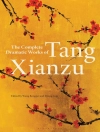The first in-depth analysis of Maren Ade’s acclaimed contemporary classic, a generational tug-of-war about the meaning of life, work, and death.
Maren Ade’s tragicomedy
Toni Erdmann, a 2016 Cannes sensation and Oscar nominee, is an internationally acclaimed classic of recent German cinema. By turns hilarious, cringeworthy, and heart-wrenching, the film revolves around Winfried, a retired music teacher and prankster trying to rebuild a relationship with his daughter Ines, a high-powered business consultant based in Bucharest. At its center, this unpredictable scenario pits one type of performance – Ines’s efforts to meet the unyielding expectations of the new economy – against another – Winfried’s anarchic role-play meant to disrupt the standardization of life. This book, the first in-depth analysis of the film, explores the many layers of this generational tug-of-war about the meaning of life, work, and death. Employing Ade’s trademark minimalist style, the film deftly comments on the precarity of life; the gendering of labor in the new economy; the re-definition of feminism by the children of the generation of 1968; and reconfigured East-West relations in post-Wall Europe. Lastly, in light of Ade’s artisanal mode of filmmaking, in which she regularly assumes the role of writer, director, and producer,
Toni Erdmann becomes a highly self-reflexive comment on the neoliberal dictates of global art cinema.
Jadual kandungan
A Question of Performance
A Cannes Sensation
Learning from Andy Kaufman
‘I Like Countries with a Middle Class’
The End(s) of Sleep
‘What do you mean by ‘happy’?’
‘Merkel Kino?’
Credits
Notes
Mengenai Pengarang
Gerd Gemünden is Sherman Fairchild Professor in the Humanities at Dartmouth College; Professor of Film and Media Studies; German Studies; and Comparative Literature. He is co-series editor of German Film Classics and the larger series Screen Cultures.












